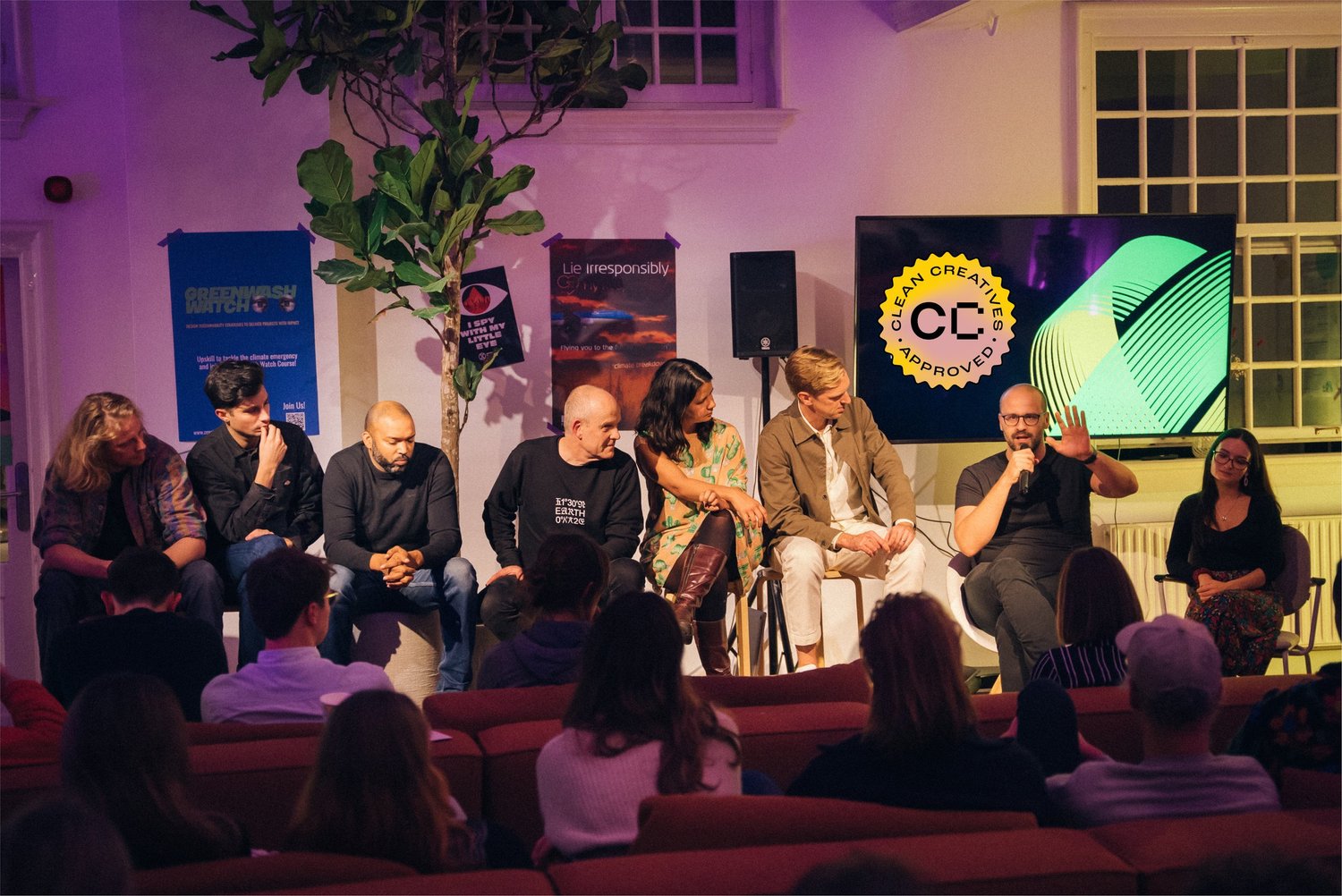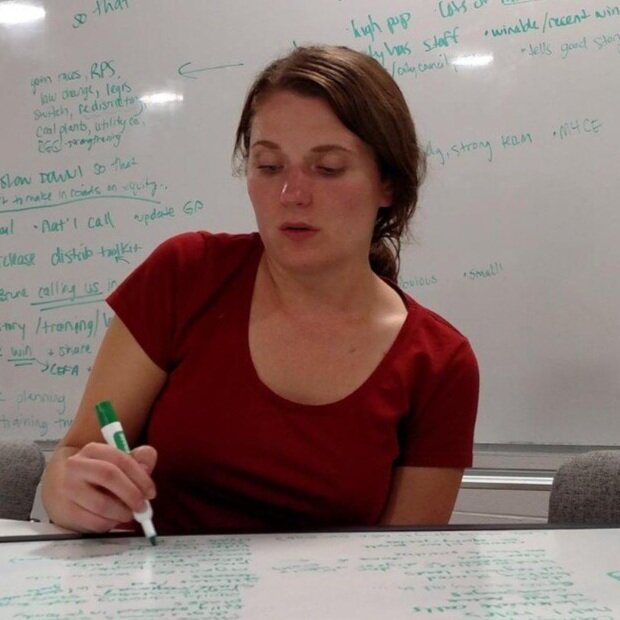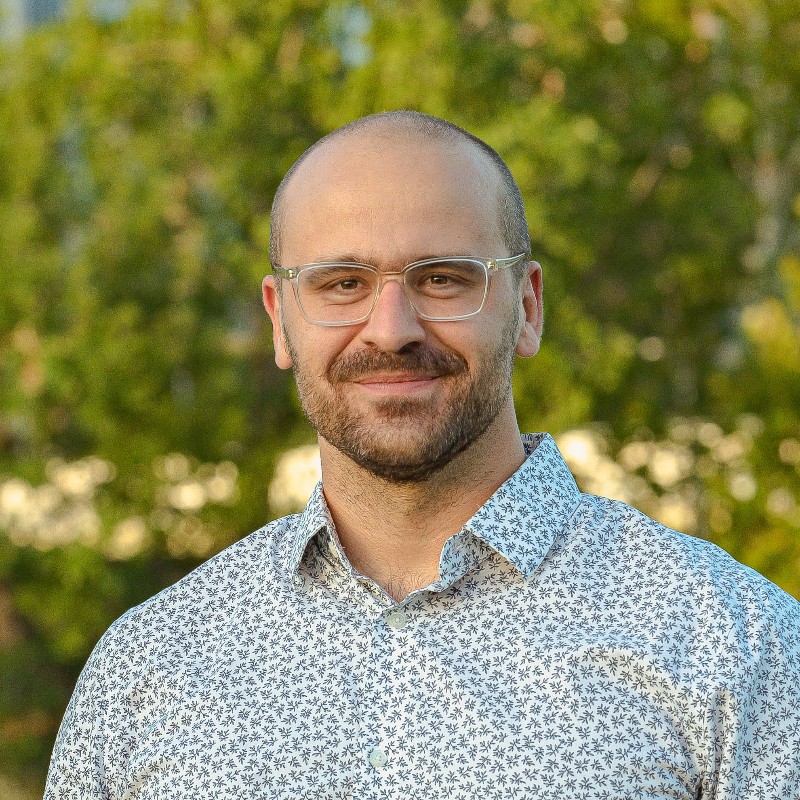Does environmental activism work? That's certainly the hope of Clean Creatives executive director, Duncan Meisel, Laura Comer, strategy at Better Outcomes Consulting, and their band of campaigners. For the past few years, they've been applying pressure on the creative and advertising industries to sever ties with Big Oil through strategic naming, shaming and partnership building. The group first started publishing annual "F-List" reports outing the agencies still working with fossil fuel clients in direct contradiction to the goals of the Paris Agreement. They raised eyebrows within creative circles and started important conversations about the role of PR and advertising in "greenwashing" for polluting industries. Clean Creatives also engaged in direct outreach with listed agencies and saw early signs their strategy was effective. Propagating through endorsements from leading creatives, sharing success stories of transitions, and joining forces with like-minded NGOs, like the Creatives for Climate, they have amplified their message and increased pressure industrywide. The campaign's impact grows with every pledge and dropped client relationship.
-Duncan and Laura, why did you create the Clean Creatives and what is important about the F-List and expose the agencies that work with fossil fuel companies?
D.M. Clean Creatives is a project to end the creative industries' work with fossil fuel polluters, the world's biggest contributors to climate change. The work that advertisers and PR companies do for these companies is a crucial part of accelerating the climate emergency. We organize people who work in the industry to advocate with their bosses and their colleagues against working for polluters. So far, around 800 agencies and 2000 individuals around the world have signed our pledge not to work with these companies. A lot of them are based in Europe. But also there are some in Latin America and Asia and North America as well. In southern Africa, we also have a hub, “Clean Creatives South Africa”. Every year we publish the F list, which is our documentation of all the agencies that are doing work with fossil fuel companies. The 2023 F-list features 294 agencies around the world, doing work with over 500 Different fossil fuel contracts. All of that work that we documented happened between 2022 and 2023, the two hottest years in human history. We're also two years after very explicit warnings given to the Creative Industry by the Intertek Intergovernmental Panel on Climate Change, and by the UN Secretary-General, making the case that the creative industry should end its work with polluters. So that is why we are doing what we're doing because this industry is contributing to a global climate emergency. In our experience, the values and principles of most people who work in the creative industry aren't very well aligned with the fossil fuel industry. We think the values and principles of industry professionals should be respected and reflected in the work that they do.
-Some critics argue the F-List is an overreach and that agencies should be free to choose clients. How do you respond to that viewpoint?
D.M. Every agency has a line that they draw, and that usually reflects their principles and their business plan. What they think will motivate their employees, what aligns with the other business they do. And we're essentially just making the case that Climate Change should be there. This is the right line to draw for most agencies: you should draw a line that says we're not going to accept clients that are actively participating in accelerating the climate emergency. Some agencies have large books of work with fossil fuel companies. These companies are extremely out of compliance with the scientific recommendations of what needs to be done to solve the emergency and there will be a point where their businesses will have to radically change by regulation, legal action or economic shifts. So we believe that this is not a particularly safe bet to build an agency around.

-So is "naming and shaming" an effective strategy for driving change?
D.M. There was a great article published yesterday in the USA publication Adweek just about the number of people who are quitting jobs because they are being asked to work for fossil fuel companies. And if you think about it makes sense: If you're in your mid-20s or younger, you have not just witnessed but probably you have participated in the global climate strikes, or at least you know many people who did. This is a generationally defining issue. So it shouldn't be surprising that people will walk out of companies that they think are not adhering to their interests. On the flip side, one of the first things that companies who take the pledge say is how much they like talking about it in their interviews and how much it motivates people to apply to work for them.
-What has the response been like from agencies on the F-List? Have any pledged to stop working with fossil fuel clients?
D.M. Yes, some agencies have had past fossil fuel clients that don't do it anymore. One of them is VaynerMedia, which used to work with Shell, but they no longer do, so they don't appear on our F list anymore. There are several HAVAS agencies, not including their media company who just signed on with Shell, but HAVAS agencies have taken our pledge. We're featuring some videos on our social media channels right now from an agency in Latin America called DONE, which did work for fossil fuel companies, until its CEO decided that it doesn't align with his purpose anymore and quit working with them. So yes, there are important examples. On the other hand, there are examples of how this is being slowly rolled back. For example, Interpublic Group has a lot of fossil fuel clients, including Saudi Aramco, the world's biggest oil company, but they won't take on new clients, which is an interesting step forward and what you need to do if you want to plan a transition out. These are positive steps, but not the complete transformation we need, at the speed we need it.
-You've called on creatives themselves to take a stand - what role can individual designers, artists and other creatives play in pushing for climate action?
L.C. On the individual level, I think that the campaign has allowed people to not feel alone in this process and has empowered them to speak out. We've found that a lot of individual pledge signers are surprised that there are people out there that think the same way as they do, and who want to make choices like this. So to be able to be part of a community with like-minded people who share your values is important. In a lot of cases, we're able to connect individuals who have signed the pledge at their agencies so that they can work together so that those decisions aren't happening on an individual level of saying no to the individual briefs, or individual clients. Together, they can work to affect change, maybe changing policy at their company or putting pressure on their agency to sign the pledge.
-What would you say to an aspiring creative who is considering working for a fossil fuel company?
D.M. The most important thing is having clearly defined values and respecting boundaries. When communicating with companies, emphasize that sustainability is an issue that smart employees understand. Make a convincing case that restricting fossil fuel ads falls within acceptable norms. The climate conversation is widespread, so boundaries here shouldn't cause objections. We've seen the power of grassroots motivation - when Vox Media staff collectively objected, their policy changed. Once individual concerns reached critical mass, the organisation adapted. Staying motivated amidst climate warnings' enormity isn't easy. But targeting the energy sector, which accounts for 75% of emissions meaningfully addresses the core problem. Success here could catalyse action elsewhere. This navigates between difficult and achievable, significant and possible. Together through principled discussion focused on shared interests, we can curb support for an industry at odds with climate solutions. Maintaining focus on the largest emissions source provides grounds for progress through shared purpose.
-Your movement has now been running for a few years. How do you think the debate around creative agencies and climate change has evolved?
D.M. Climate action in creative industries began in 2019-2020 due to protests raising awareness. Projects addressed both greenwashing and consumption, providing a useful but unclear starting point. Discussions often felt scattered - is the focus plastics, fashion, transport, fossil fuels? Meanwhile, efforts targeted immediate carbon footprints from activities like production, travel and single-use items. Debates helped communities grow, allowing a focal point beyond just internal clean-up. Restricting fossil fuel ads goes a step further, leveraging this industry's persuasive skills while providing clarity in a wide field of options. Rather than an amorphous basket of issues, this hones in on the substance of what we do - shaping opinions - and sources of the problem - carbon-intensive energy. It presents a unified strategy for ramping up climate ambitions through a targeted industry barrier.
-Where do you hope to see Clean Creatives and the conversation go from here? What would success look like for the movement?
D.M. The number of agencies committing to fossil fuel restrictions grows while those resistant to them shrink. This issue demands a clear stance and now is the time to choose - California's largest legal action involves consumer fraud claims over fuel company ads. Those lawsuits target communications strategies, meaning agencies could face serious problems. They've already undergone congressional investigations. Legal and regulatory risks are now live. Fossil use must halve within years, not decades, if we are to solve this crisis. There is no later period for maintaining credibility - now is the moment when action must be taken. The urgency cannot be overstated. Pressures will mount as employees and clients increasingly vocalise expectations. Commitment to restrictions now aligns business strategies with planetary timelines.
-What gives you the most hope in the battle against climate change and persuading people to act?
D.M. That there's real progress and It's important to recognize it when we see it. For example, major automakers committing to stop internal combustion vehicle sales by 2030-2035 shows huge shifts underway. Creativity helped popularize EVs like the early Nissan Leaf, depicting pollution's absurdity and clean driving's benefits. Orsted also transformed through rebranding from coal/gas to 70% renewables. Once "Dong Energy", Wyden Kennedy effectively recast it as an industry leader. Supporting genuine transition roadmaps can accelerate meaningful change. Most people nowadays, prefer clean energy like wind over fossil fuels, given the choice. Narratives of unreliability, high costs and doubt sowed by fossil interests undermine adoption. Their communications, not solutions themselves, block progress. So, while embracing industries transforming themselves, and supporting definitive climate plans, we must also shut off the tap of misinformation that delays action. Real barriers lie in misleading persuasion, not a lack of will for solutions that people truly like, once myths are removed. Creativity allies industry shifts, but impacts remain stifled without addressing the misdirection of public opinion.

-One last word about our fellow Creatives. As you said there is a growing movement within our Industries to become a force for change. What would you say to them?
L.C For creatives working independently or in agencies, thoughtfully using your skills and influence for good ends, is key. I encourage signing the Clean Creatives' pledge to join a community affecting larger change. It's gratifying to help solutions one client at a time. But transformative impact demands collective effort. The pledge connects you with peers growing our abilities to drive the scale of change needed. Alone we achieve little; together we can do so much more. Once pledged, stay engaged. Discuss topics with clients and potential employers, ensuring sustainability remains front of mind. Small actions compound - by constantly raising issues, over time a clear consensus emerges. Just as no agency accepts all work, restricting fossil fuel partnerships should be a basic standard like any other. Continued dialogue within networks built through pledges can establish this norm industry-wide. Together we find the strength to shift industries and societies onto sustainable footing. Your talents contribute enormously when lending support to such vital goals.










